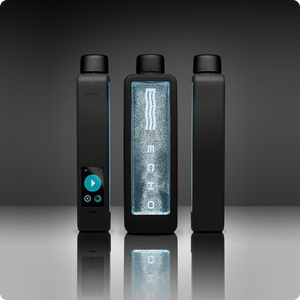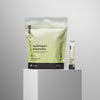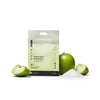What Is Oxidative Stress?
You’re Doing Everything Right—So Why Don’t You Feel Right?
You drink more water.
You get sleep.
You try to eat clean, maybe even take your supplements.
But somehow, you still feel off. You’re tired when you shouldn’t be. Recovery takes longer. Your body feels like it’s working harder than it should just to keep up.
This isn’t just aging—or overtraining—or stress. It might be something you haven’t even heard of yet.
It’s called oxidative stress, and it’s quietly messing with how your body performs and recovers, every single day.
Oxidative Stress In Understandable Terms
What Is Oxidative Stress?
Oxidative stress happens when your body has too many free radicals and not enough antioxidants to handle them.
Free radicals are unstable molecules. They’re missing an electron, and they’ll do whatever it takes to get one—including stealing from your healthy cells.
When they build up faster than your body can neutralize them, they cause damage. That damage adds up, especially in your cells and tissues. This is what scientists call oxidative stress.
But you don’t need to be a scientist to feel it.
You feel it when you’re dragging through the day.
When your joints feel achy.
When your skin looks tired.
When your brain won’t focus.
Where Do Free Radicals Come From?
Free radicals are everywhere—and your body even makes them naturally. That’s not always bad. But when they get out of control, they cause harm.
Some common sources:
-
Air pollution and environmental toxins
-
Processed foods and alcohol
-
Intense or prolonged exercise
-
Poor sleep and chronic stress
-
UV exposure and radiation
Basically: modern life.
What Do Antioxidants Do?
Antioxidants are your body’s cleanup crew. They stabilize free radicals by giving them the electron they’re looking for—without causing damage.
But your body doesn’t always have enough antioxidants on hand. Especially when you’re under stress, pushing hard at the gym, or dealing with inflammation.
And here’s the catch: most antioxidants aren’t precise. They’ll neutralize the bad free radicals, but sometimes they go after the good ones, too—free radicals your body actually needs for healing and immune defense.
That’s where hydrogen comes in.
Why Oxidative Stress Matters
How Oxidative Stress Affects Your Body
When oxidative stress builds up, it doesn’t just stay in one place. It spreads—damaging cells, slowing down systems, and making everything work harder than it should.
This shows up in real ways:
-
You feel tired, even after sleep
-
Workouts leave you sore for longer
-
Your skin starts to look dull or aged
-
Your brain feels foggy and unfocused
-
You recover slower from stress, injury, or illness
At the cellular level, oxidative stress damages mitochondria—the energy centers of your cells. That means your energy drops, your immune system weakens, and your body starts to age faster.
The Long-Term Cost
When left unchecked, oxidative stress becomes more than just an energy drain. It’s linked to dozens of chronic conditions, including:
-
Inflammation-related diseases
-
Type 2 diabetes
-
Heart disease
-
Neurodegenerative conditions like Alzheimer’s
-
Metabolic syndrome
-
Premature aging
It’s not just about feeling better today. Reducing oxidative stress helps protect your long-term health—and keep your body running better, longer.
Why Traditional Antioxidants Aren’t Always Enough
They Work—But They’re Not Smart
Vitamins like C and E, or antioxidant-rich foods like berries, are good for you. But they’re non-selective—they don’t know which free radicals to neutralize.
That can be a problem.
Some free radicals actually help with immune signaling and cellular repair. But when you flood your system with standard antioxidants, they wipe out the good along with the bad.
Overdoing It Isn’t the Answer
More supplements don’t mean more protection. In fact, too many antioxidants can create imbalance of their own, disrupting the natural processes your body uses to heal and adapt.
Your body needs a smarter solution—something that helps where it matters, without causing harm.
That’s exactly what molecular hydrogen does.
How Molecular Hydrogen Solves the Problem
What Makes Hydrogen So Powerful?
Molecular hydrogen (H₂) is the smallest molecule in the universe. That’s not just trivia—it’s the reason it works so well. Its size allows it to travel deep into your cells, reaching the parts of your body that most antioxidants can’t touch.
Hydrogen doesn’t just float around in your system. It goes straight to the source of oxidative damage—inside your mitochondria, inside your DNA—and starts to work where it counts.
The Selective Advantage
Most antioxidants are blunt tools. Hydrogen is precise.
It selectively targets the most harmful free radicals—like hydroxyl and peroxynitrite—and leaves the helpful ones alone. That means your body gets protection without interference.
Even better? Hydrogen also helps trigger your body’s natural antioxidant defenses. It doesn’t just neutralize damage—it helps your body stay ready to prevent it.
Science-Backed, Results-Driven
Hydrogen therapy isn’t hype. It’s backed by over 1,000 published studies, showing benefits across multiple areas:
-
Reduced oxidative stress
-
Improved metabolic health
-
Decreased inflammation
-
Faster muscle recovery
-
Slower cellular aging
You don’t need to memorize the research. Just know this: hydrogen works, and your body knows exactly how to use it.
How Selective Antioxidants Help You Feel Better
-
More energy during the day
-
Faster recovery after workouts
-
Less muscle soreness
-
Better focus and mental clarity
-
Healthier-looking skin
-
Less brain fog under pressure
And for many people, the change is fast. You don’t need weeks of use to feel a difference. Some notice results in days.
Why Water Alone Isn’t Enough
Your body needs more than just hydration—it needs cellular support. Hydrogen water delivers that. And the best way to get it is with a source that’s clean, concentrated, and ready whenever you are.
That’s where Echo comes in.
Oxidative Stress Is Real—But You’re Not Powerless
Your body is under constant pressure—from stress, toxins, poor sleep, intense training, and the world around you. Oxidative stress is part of that story. It chips away at your energy, slows your recovery, and accelerates aging at the cellular level.
But there’s good news: your body also has tools to fight back. And hydrogen is one of the most promising.
By supporting your cells with targeted antioxidants like molecular hydrogen, you help your body stay balanced, resilient, and ready for whatever the day throws at you.
Feeling better starts with understanding what’s working against you—and making small, powerful changes that support what your body’s trying to do every day: heal.






